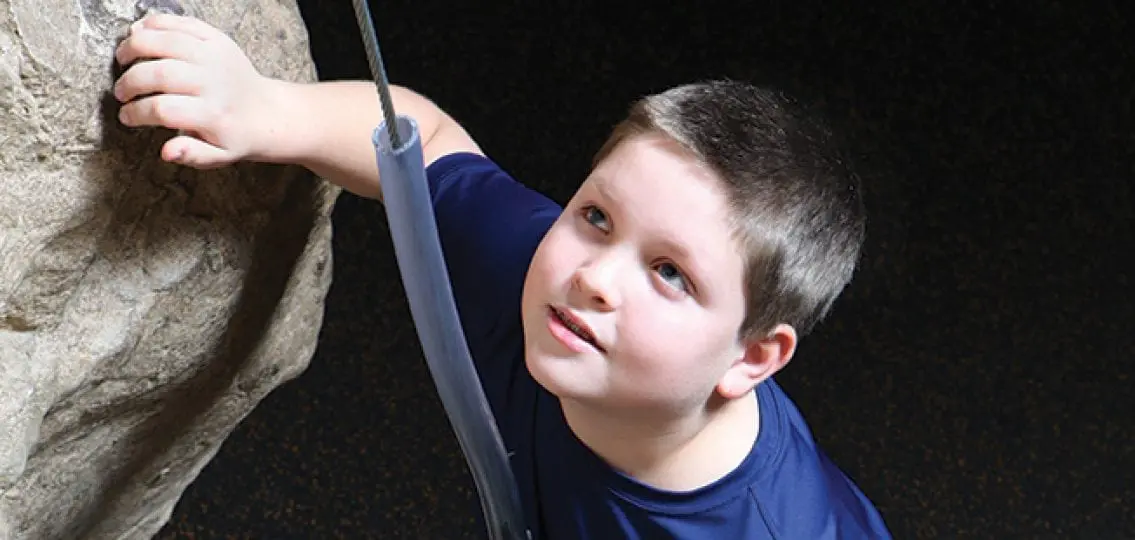In elementary school, parents typically take care of most things for their children. You wake them up in the morning, make their meals, do their laundry, help with homework, take them here and there, and get them into bed at night. You know the drill. Fostering independence in your grade school kids seems like a distant goal.

But when our adolescents head to middle school, it’s time to rethink that role, says Susan Schechtman, a former middle-school principal who now works with parents at the Los Angeles-based Parenting 4 Success.
“You are being demoted. You were the micromanager, then the manager, and now you need to be a coach,” she explains.
That means instead of managing everything for your middle schooler, you’re fostering independence in your child. That means letting them take charge of some things (and eventually many things) while coaching from the sidelines.
The reason: Adolescents who are encouraged to take ch—arge for themselves—even if they mess up—turn into independent, resilient young adults able to handle life’s ups and downs. And that’s the goal, right?
Tips for Fostering Independence
Here’s Schechtman’s advice for how to handle your demotion.
1. Make middle schoolers responsible for tasks they can do for themselves.
Take stock before middle school. What can your adolescent be doing on their own and how can you foster that independence?
“It can be things around the house, like folding laundry or making their own lunches,” says Schechtman, adding that while parents should demonstrate how to do these tasks, they should resist being overly critical or, worse, taking over.
“Even if it’s not the way you would do it, don’t jump in and say, ‘Oh you should do it this way,” she says. “That is diminishing them. Let it go.’”
As your adolescent gets comfortable with handling some tasks independently, look for more things she can do. A helpful rule of thumb: If it’s a task your adolescent can do—or almost do—on their own, they (and not you) could be doing it.
And remember: You’re still the coach. If your adolescent messes up—hello, pink laundry—step back in and coach him through the process again, then step away. Repeat as necessary.
2. Start teaching problem solving skills to middle schoolers.
“Whether it’s social, academic, or any other part of life, they’re going to run into the usual challenges of middle school,” Schechtman explains. “You want them to learn to be the problem solvers.”
That doesn’t mean you wish your adolescent luck and walk away. Remember, when you’re dealing with the challenges of middle school, you are the coach whose goal is to foster independence. “If you see they are stuck, ask them questions that can help teach problem solving skills, so later on they will ask themselves those questions when faced with a similar problem,” recommends Schechtman.
Here’s a sample scenario: Say your adolescent feels that a teacher or coach is being unfair. “First get their perspective,” says Schechtman. “Ask questions to figure out the bigger picture.” Perhaps they got a grade they felt wasn’t fair—or they didn’t get to play in the last game.
Then help your middle schooler come up with ideas. Schechtman recommends role playing to help adolescents think through situations like these. “You can say, ‘Let’s role play. I am the teacher or the coach. Do you want to meet with the teacher? Do you want to say it in an email? And what would you say?’”
Then encourage your middle schooler to try his ideas for solving the problem. Check in on the results.
“You are giving them ideas by asking questions, but not doing it for them,” notes Schechtman.
3. Embrace the struggle.
Sometimes a problem may come along that is above your adolescent’s pay grade, so to speak. Say the aforesaid coach or teacher was wielding their power in a way that truly was unfair (or worse).
“If the child is really being harassed or if there is a problem that you really believe needs intervention, then of course you step in,” says Schechtman.
But most problems aren’t like that, so work hard to make sure you’re not intervening inappropriately.
“Often, we rob these kids of the opportunity to learn to fix a problem because we don’t want them to struggle for one minute,” Schechtman notes.
The fact is, everyone faces disappointment. Sometimes we just don’t get what we want. Learning to deal with that reality is important.
“It’s so hard, and parents want to take away the pain their child might be feeling, But, before you do, think long term. What is going to happen the next time around? Will your fixing it really help them learn how to deal with it?” says Schechtman.

Fostering independence today, so your middle schooler learns how to solve problems by him or herself tomorrow. It starts with backing off now, mom and dad.




